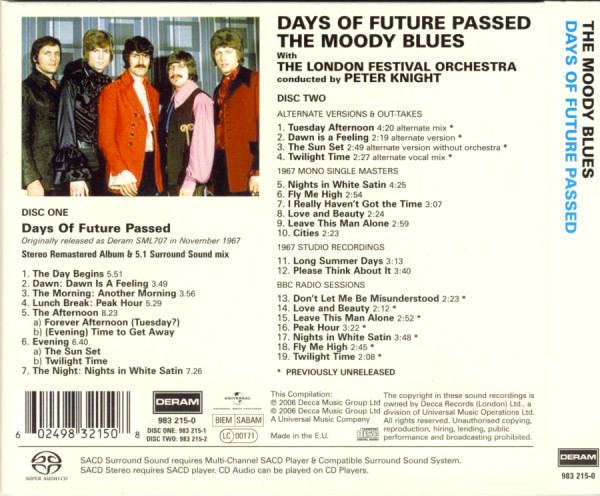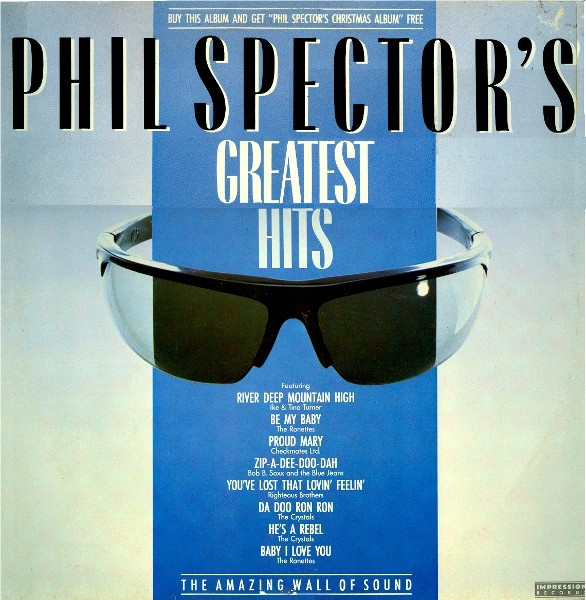The Moody Blues: Days Of Future Passed - 1967
Despite Pink Floyd's psychedelic output from the time, it is largely accepted that this Moody Blues album from 1967 was the first "prog rock" piece of work.
Inspired, in a way, but not completely, by the Beatles and The Beach Boys' use of orchestral and classical instrumentation on their Sgt. Pepper and Pet Sounds album, The Moody Blues went the whole orchestral hog and hired The London Festival Orchestra who dominate he whole shebang in a way that no "rock" album had been previously.
It was also the first "concept album" (something that prog would come to completely embrace) covering a day from dawn to dusk, playing as one continual suite of music, interrupted by occasional, irritating and thoroughly pretentious narration. It really was a most adventurous project, however, and, largely due to the Decca label's desire to show of their shimmering new stereo sound it duly sounds great.
For me, it suffers from too much Light Programme-ish jaunty and skittish violin-dominated classical movements, which leave me longing for a bit of rock. I only get this on the excellent punch of Lunch Break: Peak Hour when the group finally use their drums and guitars to great psychedelic effect. There are also some Kinks-ish and hippy vibes to be found on The Afternoon together with some distinctly Mamas And the Papas-style vocal harmonies.
Evening comes complete with lyrics about planets (pre-dating space rock by a few years) and a general psychedelic, druggy ambience. Far out man. The final denouement is the album's big hit single, the peerless and universally-known Nights In White Satin, of which no further comment from me is needed other than it is beautiful, of course.
There are some good passages on here, but the whole 1967-68 concept thing is not particularly to my taste (The Who, The Small Faces and The Pretty Things dabbled in this too on The Who Sell Out, Ogden's Nut Gone Flake and S.F. Sorrow respectively) and I am not likely to return to the album too often, but when I do, I will always enjoy its simply sumptuous sound. Furthermore it puts any of the other contemporary experimental pieces to shame.










